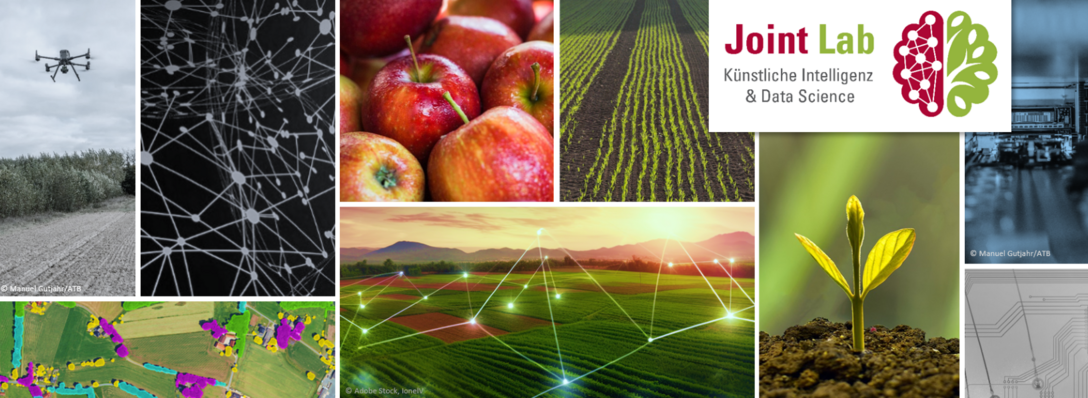Weiterführende Informationen
Top content
News
Prof. Dr-Ing. Cornelia Weltzien receives the prestigious Max Eyth commemorative coin
As part of this year's VDI Land.Technik conference in Osnabrück on November 6, 2024, the Max Eyth Commemorative Medal of the Association of German Engineers (VDI) was awarded to ATB scientist and spokesperson of the Joint Lab Prof. Dr.-Ing. Cornelia Weltzien. The renowned engineer is thus honoured for her outstanding achievements and services to the development and promotion of the digitalization of agriculture and her tireless commitment to the promotion of young scientists.

Congratulations, Jonas!
On 25.10.24 Jonas Schmidinger won the Hissinkprijs 2024 for his master's thesis “Validation of Uncertainty Predictions in Digital Soil Mapping”. The Hissinkprijs is awarded annually by a jury of the Dutch Soil Society (Nederlandse Bodemkundige Vereniging - NBV) for the best master's thesis in the Netherlands in the field of soil science. The master's thesis was written with his former supervisor Prof. Gerard Heuvelink and subsequently published Geoderma.
You can find the publication here.

Land.Technik 2024: The Joint Lab with a rich research contribution
At the International Conference on Agricultural Engineering LAND.TECHNIK 2024 in Osnabrück, PhD students from the Joint Lab KI & DS showcased their research during the Young Professionals meet VDI-MEG meeting, organized by the Joint Lab member and Business Development Manager Dr. Sharvari Raut. The event featured a keynote address by Prof. Dr. Cornelia Weltzien, who later received the prestigious “Max Eyth commemorative coin” award. Following the pitch presentations from the young researchers with several Joint-Lab PhD students, attendees participated in a World Café, facilitating networking opportunities with professors and industry experts.

A meeting with many impressions: “Rubber Boot Camp” at the ATB
The internal meeting of the ATB under the motto “Rubber Boot Camp” offered the doctoral students of the Joint Lab the opportunity to gain practical research insights and get to know the experimental sites. Exciting sessions for scientific and informal exchange took place, which promoted networking. A highlight was the visit to Werder Island in beautiful weather. The participants appreciated the opportunity to share ideas and experiences. The next joint meeting is planned for March 19-21, 2025.



